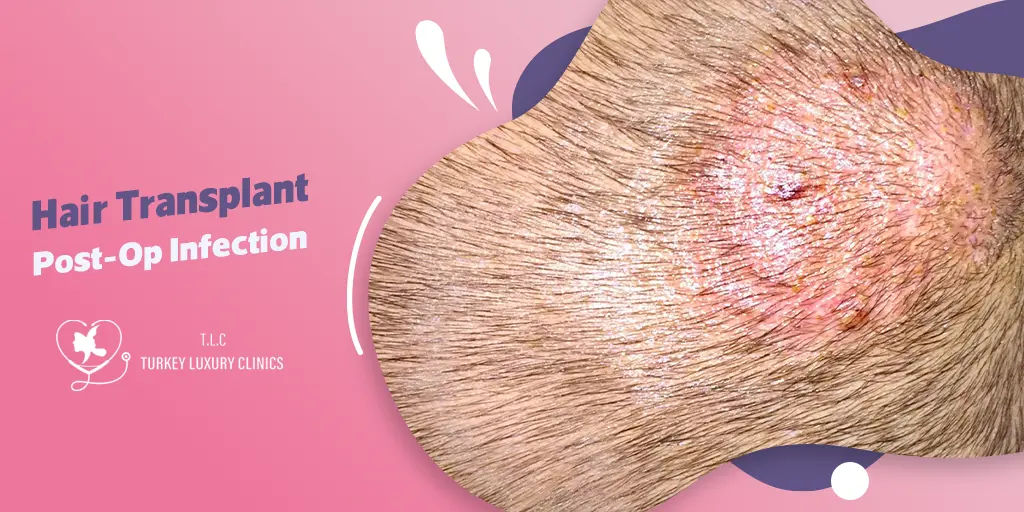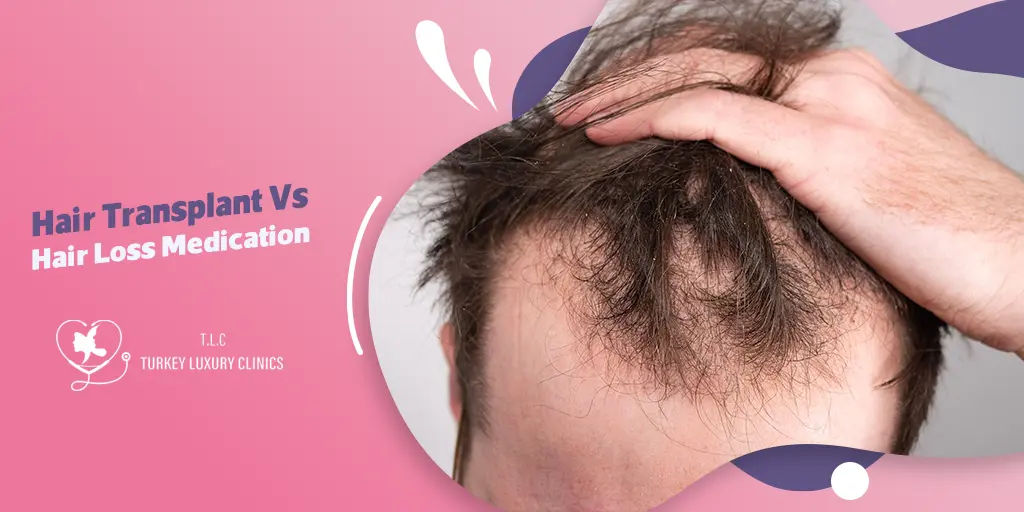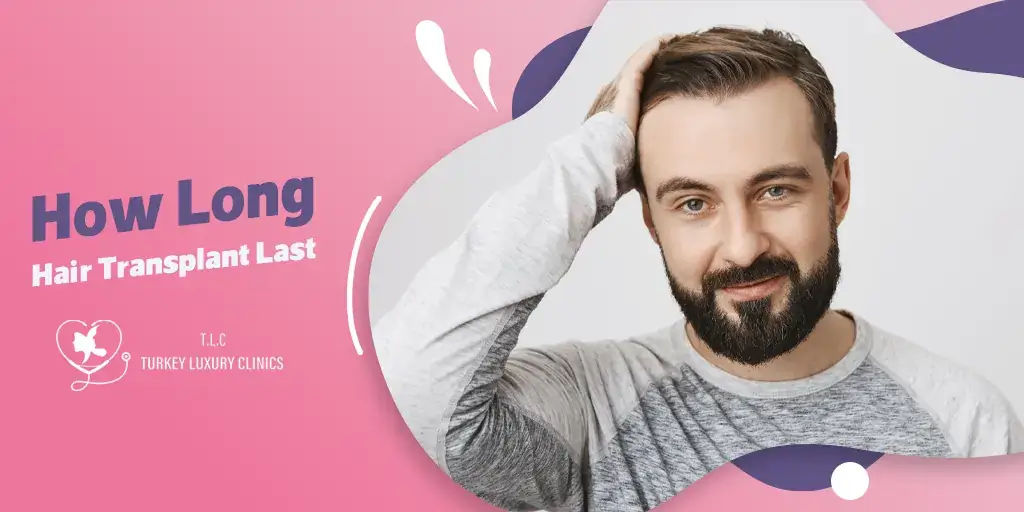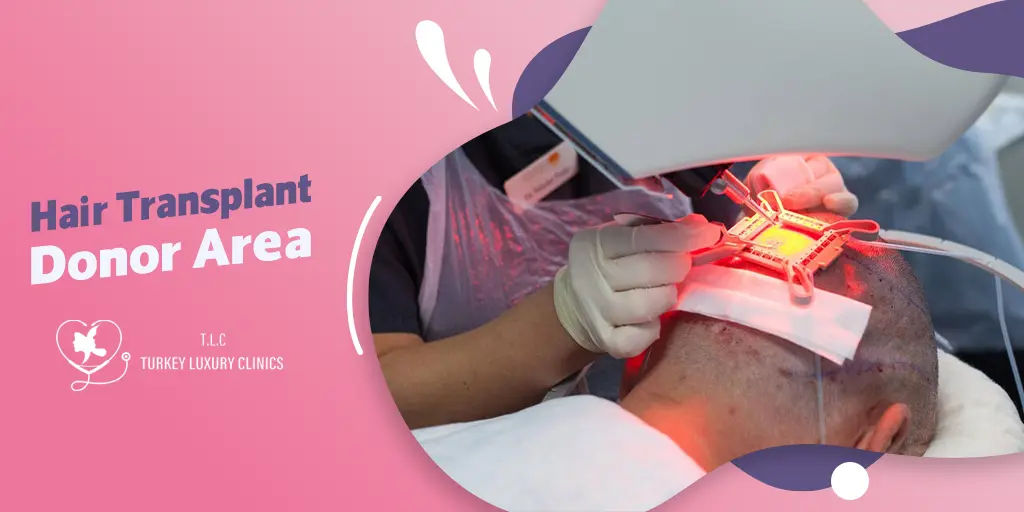- - What are the symptoms of hair transplant infection?
- - What are the main causes of hair transplant infection?
- - How to treat an infected hair transplant?
- - How to avoid a hair transplant infection?
- - Complications that may arise following hair transplant infection
- - Trusted hair transplant doctors at Turkey Luxury Clinics
It is incredible how many people are choosing to have hair transplant surgeries these days! In fact, it's one of the top 5 most popular surgeries and the most frequently performed cosmetic procedure for men. However, not all of these transplants go as smoothly as we'd all hope, with some ending in hair transplant regrets. It's so important to make sure you go to a trusted, professional clinic, as you could be putting yourself at risk of experiencing a hair transplant infection if you don't.
In this article, we're going to dive into the world of hair transplant infections, exploring what causes them, the different types, and the treatment options available.
What are the symptoms of hair transplant infection?
To put it simply, an infection can occur when microbes enter open wounds at the site of the donor hair follicles or at the reception site. The good news is that your scalp has a large network of blood vessels that allows your immune system to quickly target pathogens. In a small but exciting study with male participants, researchers discovered that scalp infections are rare and often not serious.
The majority of surgical infections occur between 3 and 7 days following a procedure. In the event of an infection following a hair transplant, the following symptoms may occur:
- Pus-filled abscess
- Swelling
- Pain
- Itchiness
- Bleeding
- Warmth
- Redness or skin discoloration
Some degree of bleeding and swelling is to be expected. However, if symptoms persist for more than a week or worsen, it is indicative of an underlying infection. Infections can also give rise to systemic symptoms, which may include:
- Vomiting
- Nausea
- Headaches
- Lethargy
What are the main causes of hair transplant infection?
There are a number of potential causes for infection following your hair transplant. The most common causes of infection following a hair transplant are improper hygiene, excessive skin scabbing, and underlying medical conditions.
Bad hygiene
It's important to be extra careful with your open wounds after a hair transplant. Even if you're following all the instructions, bacteria can still find its way in. And if the tools used during the procedure aren't properly sanitized or if you touch your wounds while they're still healing, you might develop an infection.
Excessive scabbing
It's totally normal for your wounds to scab and form a crust. But here's something you might not know: excessive crust formation can lead to itchiness, which encourages scratching. And scratching your scalp can dislodge scabs and transmit bacteria from your fingers into your wounds. So, it's really important to keep your scalp clean and free of bacteria to keep your wounds healthy!
Underlying medical conditions
Finally, some medical conditions can weaken your immune system and make you more likely to get a wound infection. These include:
- HIV
- Cancer
- Diabetes
- High blood pressure
- Malnutrition
How to treat an infected hair transplant?
In case of an infection, you should contact your doctor as soon as possible to discuss the most appropriate course of treatment. You may be advised to take an oral antibiotic in conjunction with a topical treatment. However, you could also treat your infection by exfoliating your scalp daily with a warm compress and washing your hair twice daily with an antibacterial shampoo. This will keep your scalp clean and prevent infection.
How to avoid a hair transplant infection?
Here are some ways to avoid complications from a hair transplant:
- Have your procedure at a professional clinic. At Turkey Luxury Clinics, hygiene standards are second-to-none
- Refrain from picking at your scabs or touching their wounds
- Follow post-op instructions carefully
- Stay away from tobacco and alcohol while recovering
- Refrain from strenuous exercise during the first weeks of recovery
Complications that may arise following hair transplant infection
It is worth noting that an infected scalp may potentially lead to a range of other complications, both in terms of one's general health and the eventual success of a hair restoration procedure.
Folliculitis
Bacterial infection can cause your hair follicles to become inflamed. This condition is known as bacterial folliculitis. It shows up as red bumps around your follicles, which usually show up a few weeks or months after your surgery (though folliculitis is a common scalp condition for people who haven't had a hair transplant).
It's also possible to get folliculitis without an infection. This is what we call sterile folliculitis. If you think that you might have folliculitis, it would be a good idea to speak to your hair transplant aftercare team. They can probably recommend a treatment to reduce the inflammation and fight the infection if it's needed.
Necrosis
Necrosis is a type of tissue damage that can result from severe infections. Infections can also increase the risk of ischemia, which is when blood flow to certain areas of the body is reduced. If the lack of blood flow continues for too long, the tissue may ultimately die. This is known as necrosis.
When the scalp gets damaged by necrosis, the affected tissue becomes black and leathery. Because this isn't reversible, the affected tissue might need to be removed by a surgeon. If you experience severe, localized pain on your scalp after your hair transplant, please contact your surgical team.
Trusted hair transplant doctors at Turkey Luxury Clinics
Turkey Luxury Clinics is a place where trusted, hygienic, and professional hair transplant surgeons are ready to take care of you. Over the past 22 years, we have successfully completed thousands of hair transplant surgeries for men and women, and our high success rate is a key competitive advantage. Contact us today to speak with one of our health consultants, who will be happy to assist you in restoring your natural hair.














.webp)
.webp)
.webp)
.webp)

